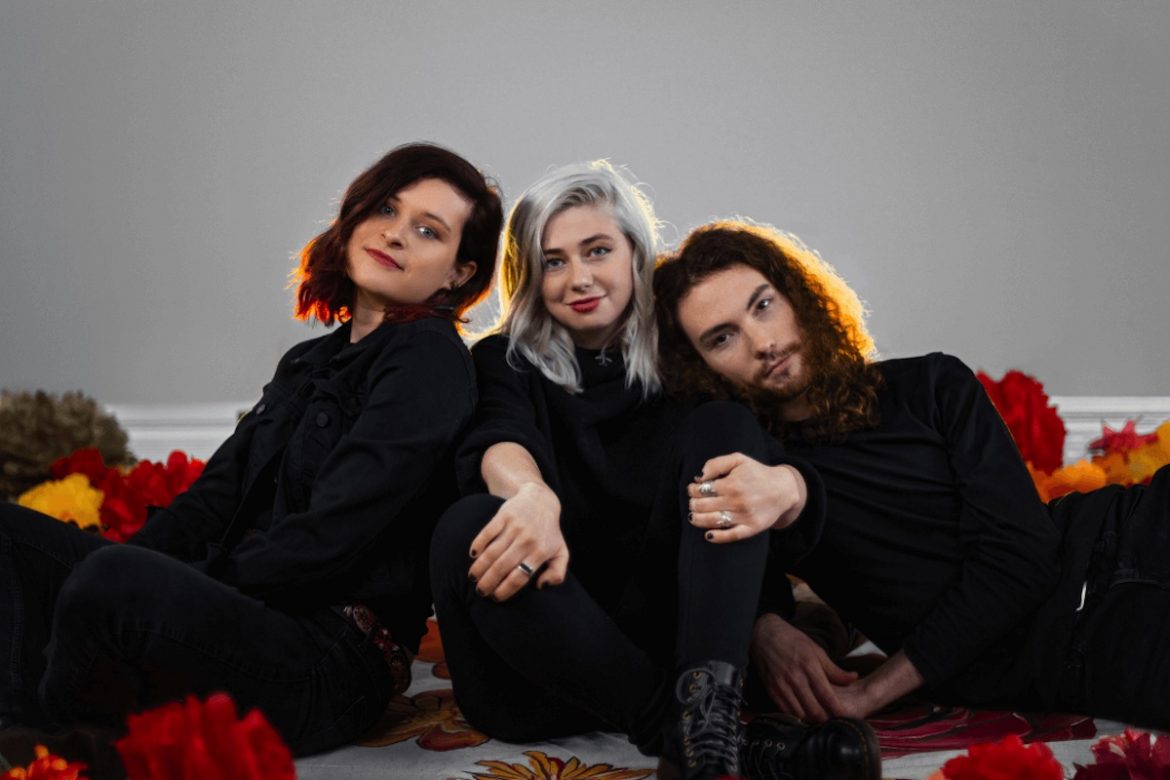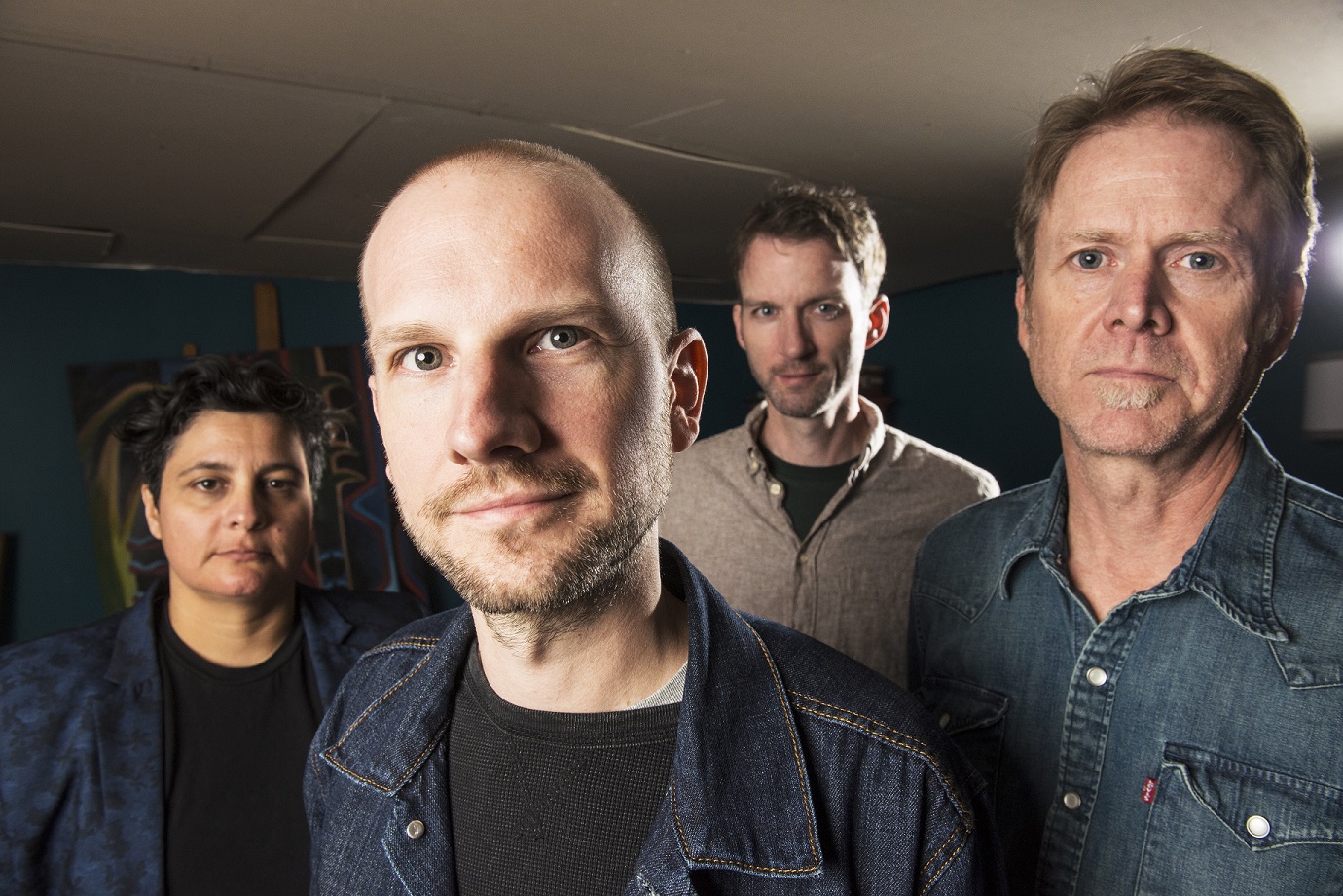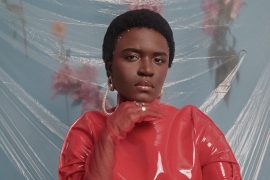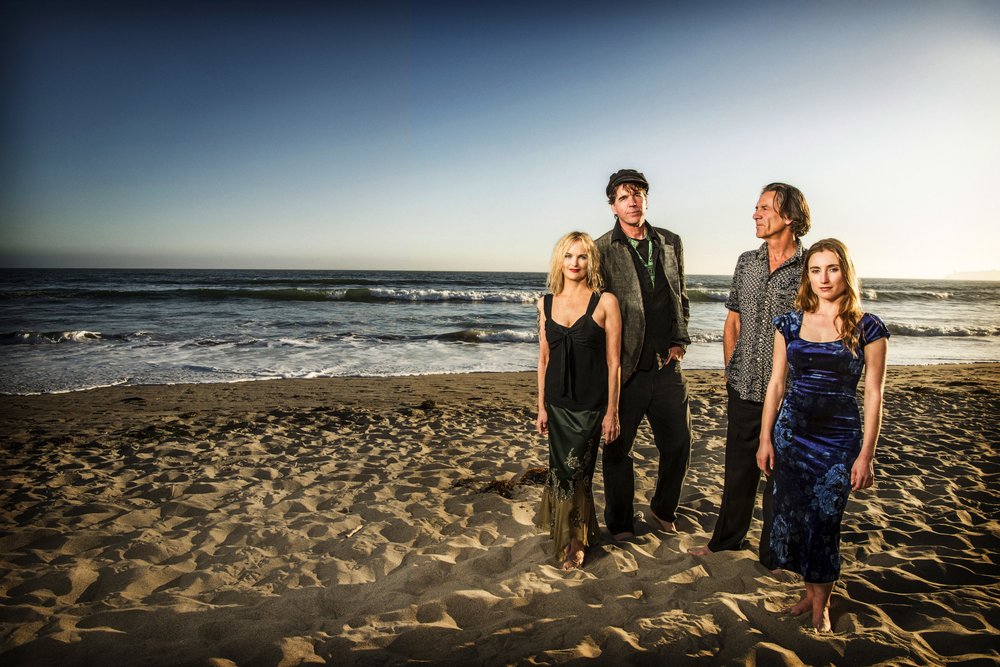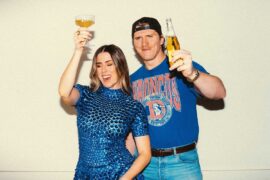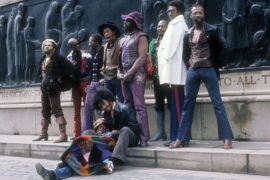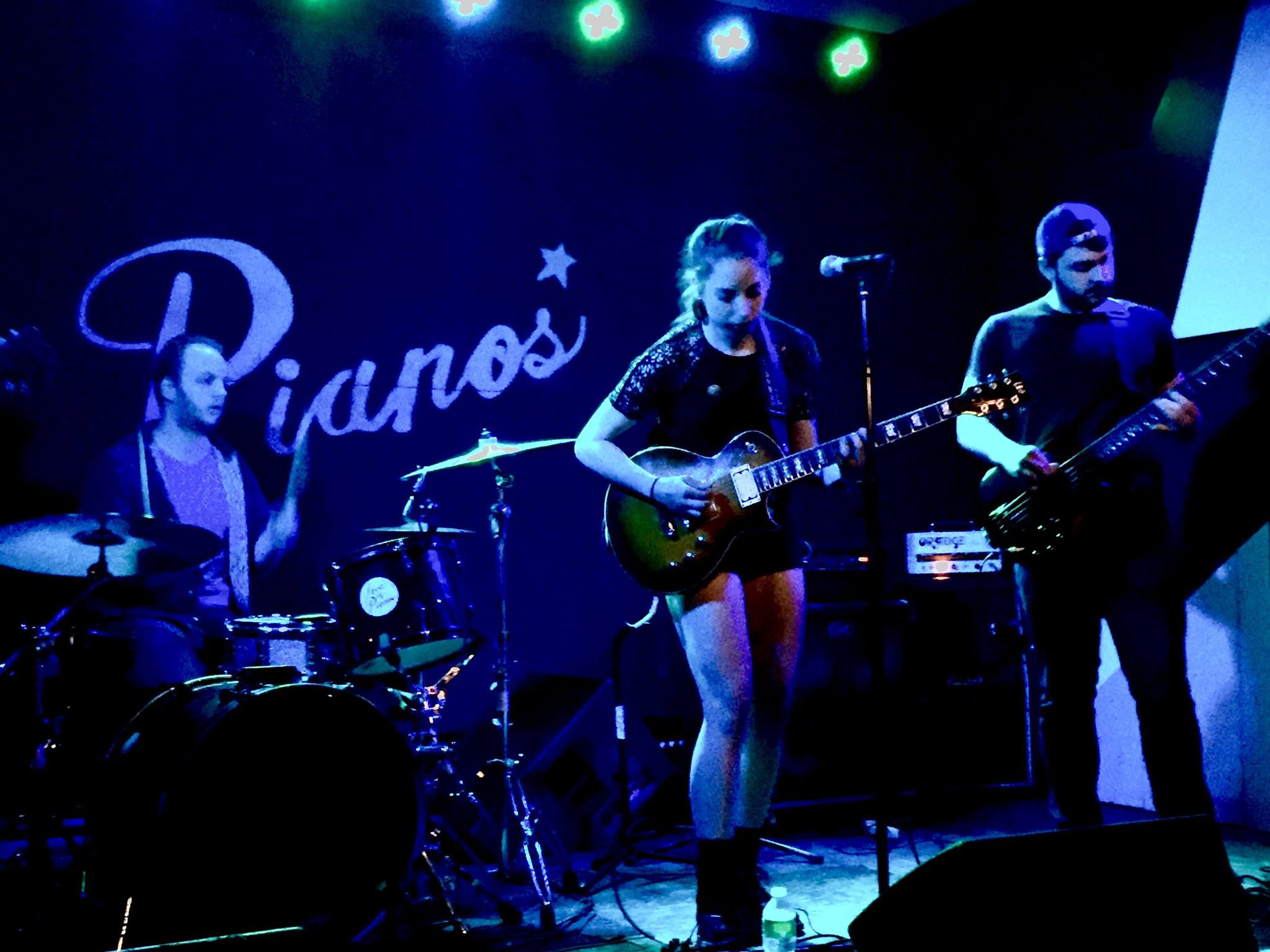This Women’s History Month, Atwood Magazine has invited artists to participate in a series of short essays in observance and celebration of the month’s significance. Today’s submission comes from Sav Buist of Nashville-based trio The Accidentals.
•• ••
Picture two shy, nerdy humans, ages fifteen and sixteen.
One of them hides behind a curtain of hair and a tattered green corduroy jacket covered in enamel pins and sewn-on patches. The other insists on wearing baggy sweatshirts and hats every day. Imagine them in their school orchestra together, on opposite sides of the conductor’s podium, holding their violin and cello, making fleeting eye contact but emotionally unequipped to speak to the other.
One day, they both decide to stay after school and play in an “Alternative Styles for Strings” club. Their teacher purchases electric orchestra instruments and Led Zeppelin and Coldplay quartet arrangements online for them to play. The two become acquainted – the music speaks for them; it’s an introvert’s fast track to friendship.
When they are asked to play a couple of songs for the people that paid for the instruments, they get together to rehearse. Through their common love of the White Stripes and a knack for harmonies, they become a band before they’ve even become friends. It’s awkward, at first, as they fumble their way around the stems of a budding friendship. But the bond grows, and soon they find themselves at breweries and coffee shops, under the careful watch and mentorship of their respective parents, all of whom have seen – and taken – this path before, in their own ways.
Eventually, these two shy, nerdy humans, ages sixteen and seventeen, find themselves bouncing between two different studios during spring break, with two different producers. The first producer looks them up and down, then turns to his hired session players – a drummer and a bassist – and says, “Well, we’ll start with scratch tracks. No doubt we’ll need to replace them later.” Glances between both parties are exchanged. The one wearing the baggy sweatshirt sets her mind to it, unpacks her guitar, and gets behind the beat-up mic to play one of the first five songs she’s ever written.
The first take is a keeper. The drummer and bassist are ecstatic. The producer’s dismissiveness, a thinly veiled act of sexism and ageism, falters for a moment; then he doubles down. The drummer and the bassist, however, insist that he puts better microphones on the guitar and starts getting real takes. Begrudgingly, the producer gets up and makes it happen. This would be a foreshadowing of those early years.
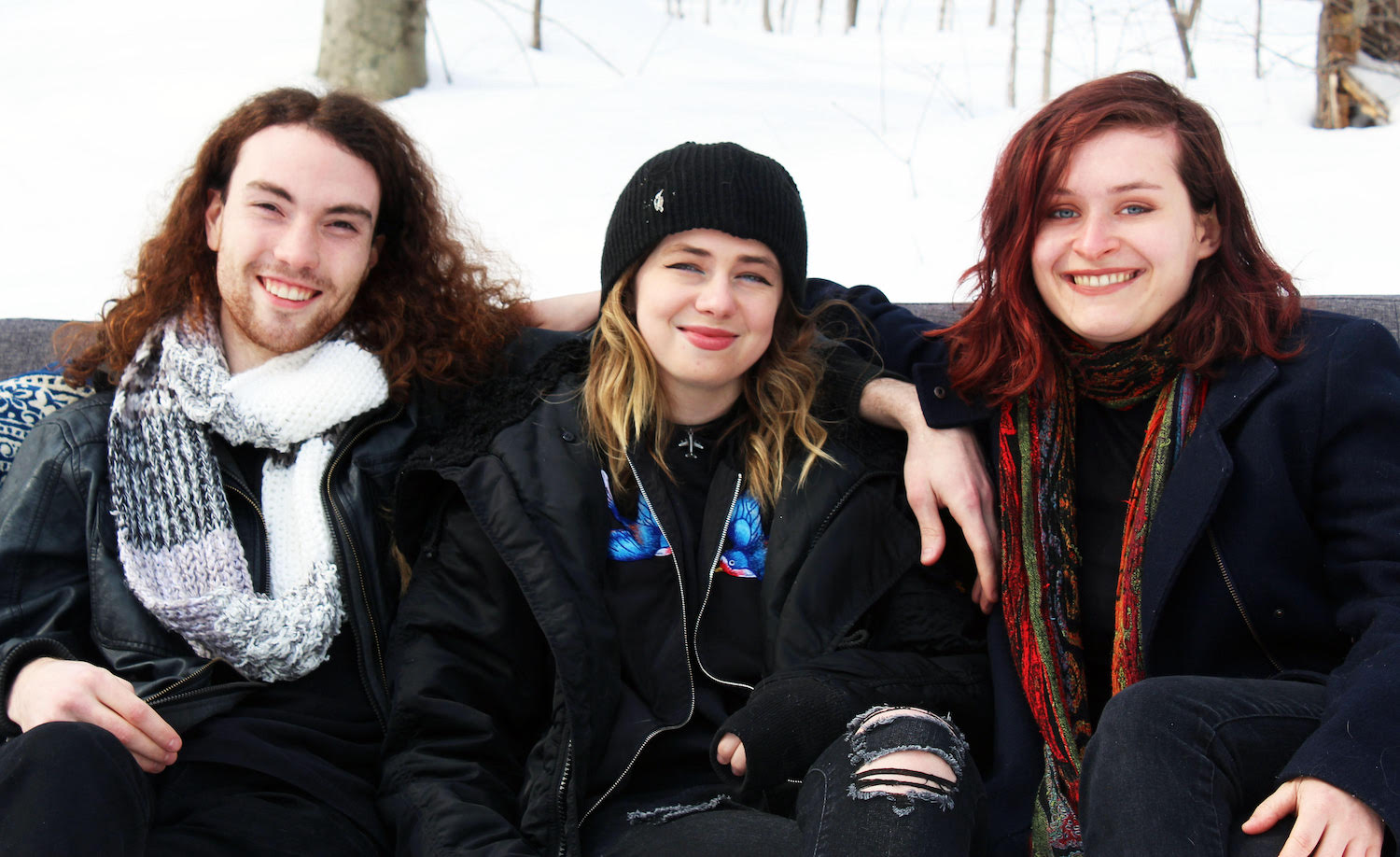
These two shy, nerdy humans bounce to the second producer.
This producer, who’s already heard the music, immediately greets them with a handshake; he sets up microphones that look like spaceships, some worth the cost of our tuition, and they get to work. He listens. He produces. He teaches. The respect is mutual, bridging a generational gap, proving that it’s possible. This would also be a foreshadowing of the years to come.
These two learn something important from these producers. When you hire someone to work with you, the balance of power should – and can – be equal. Respect is often treated as something to be earned, implying that one should be able to disrespect someone before they know anything about them.
HEAR THIS: Respect is simply a human right – a well from which everyone can draw water.
In an ideal world, the water would be shared, the way it was with the second producer – without the taint of pre-conceived stereotypes and inflated ego. Sometimes it takes an extra pair of hands to hoist the bucket from the depths of others’ judgment.
Katie and I were accepted at a prestigious music school our junior/senior year of high school on the merit of that album we recorded with those producers. We went to school from 8 AM to 5 PM, and then we’d jump in my mom’s car, and she would drive us to gigs and recording sessions. Those first shows were small, and my parents, being musicians, taught us how to set up our own gear and run it ourselves.
After I graduated, I spent a year at my local college waiting for Katie to graduate and earning a music production and audio engineering certificate. Then we toured HARD. We averaged about 200+ shows every year. As the shows got bigger and we started working with house engineers (aka, no longer setting up our own PA system), we noticed a pattern – none of these engineers were women. In fact, most of them were men who wore grim facial expressions or badly concealed eye rolls when they saw us lugging our instruments through the venue doors. The questions were oftentimes humiliating – “Do you know how to use that?” or, “Do you know what a DI is?” At this point, I had done intensive frequency training and had spent hours in the car listening to mixes with my big bulky headphones and had identified them by ear down to the digit. It’s pretty normal for a musician to ask for certain frequencies to be cut or boosted in their monitor, ears, or instrument. Nevertheless when we asked, we were oftentimes ignored. Sometimes I would watch an engineer feign a fader move, then gaslight me when I called out the behavior.
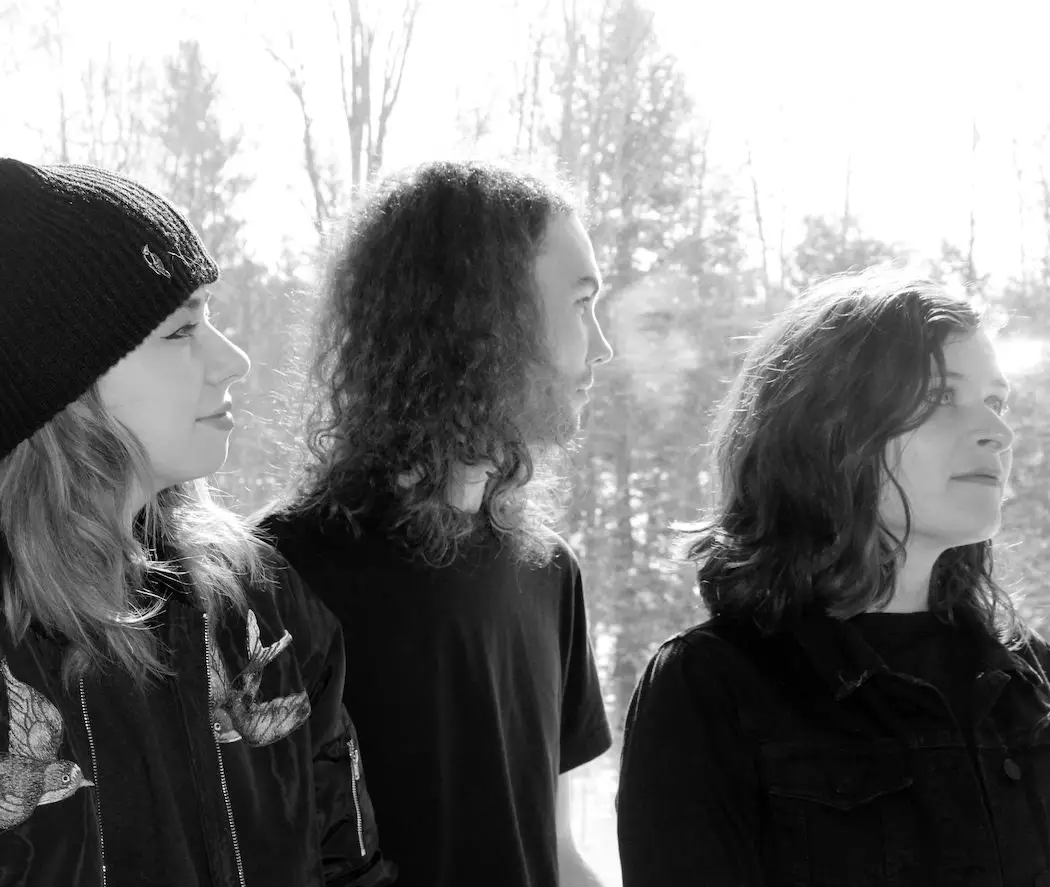
So we decided to hire our own engineer, who happened to identify as a woman.
In a move that surprised no one, the disrespect shifted to her.
I want to note that not all male engineers were disrespectful. However, friendliness and respect were not the norms during these years. Oftentimes the disrespect was so casual, they hardly knew when or what they were doing. They would call our engineer “honey” or “sweetheart.” They’d sometimes ask if she knew how to do her job or they would stand intimidatingly over her shoulder while she tried to figure out their patch spaghetti without offering to help.
Then soundcheck would happen. Katie and I would pass between us acoustic guitar, electric guitar, and electric bass; I would pick up a mandolin or an electric violin; Katie would test her electric cello and if there were issues, such as a faulty power source or a bad quarter-inch cable, we would fix it ourselves. A couple of verses of a Rush song, three-part harmony, with our drummer Michael, and suddenly the house engineer is smiling and explaining the bass traps in the room. Only then, did the respect come. The air would literally change as we played – not just in the way that the music bounces from wall to wall, but in the way that it spoke for us, literally in volumes, when our voices alone would not cut through.
We quickly realized that speaking the language wasn’t enough, we had to shake off our corduroy jackets and baggy sweatshirts, for leather boots and knife earrings. We had to be more professional, more confident, more educated. We needed to be better prepared than any of our male musician friends if we wanted to be taken seriously – if we wanted our fair share of the well water.
We had a running joke that we were changing the story, one jaded engineer at a time. But the problem wasn’t really with the engineers, as Brandi Carlile pointed out at a panel at AmericanaFest, years later. It was a systemic problem – a culture that words like “honey” and “sweetheart” were complimentary and could exist in a professional work environment. A culture in which producers could decide your worth and talent with a condescending glance. A culture in which agents might cut female artists for not being “the right fit” physically; a culture in which festivals consist of almost entirely male lineups; a culture in which people may not even see it, or have simply accepted it, as the reality in which we live. Our point is that it doesn’t have to be.
Back to our first production deal. Katie and I passed on scholarships, namely, a full ride to Berklee College because we were being offered a production deal – one that promised to help us achieve our goal, which was, at the time, just to make music we were proud of on a professional level. We were eighteen years old when we signed the contract.
Again, that balance of power was off. One producer protected our right to creative choice and the other producer used his clout in the industry as a weapon to hold us hostage in a situation that wasn’t healthy. It didn’t take long for us to realize we were pawns for his ego. It took one year, a negotiator, two lawyers, and thousands of dollars to disengage from that situation.
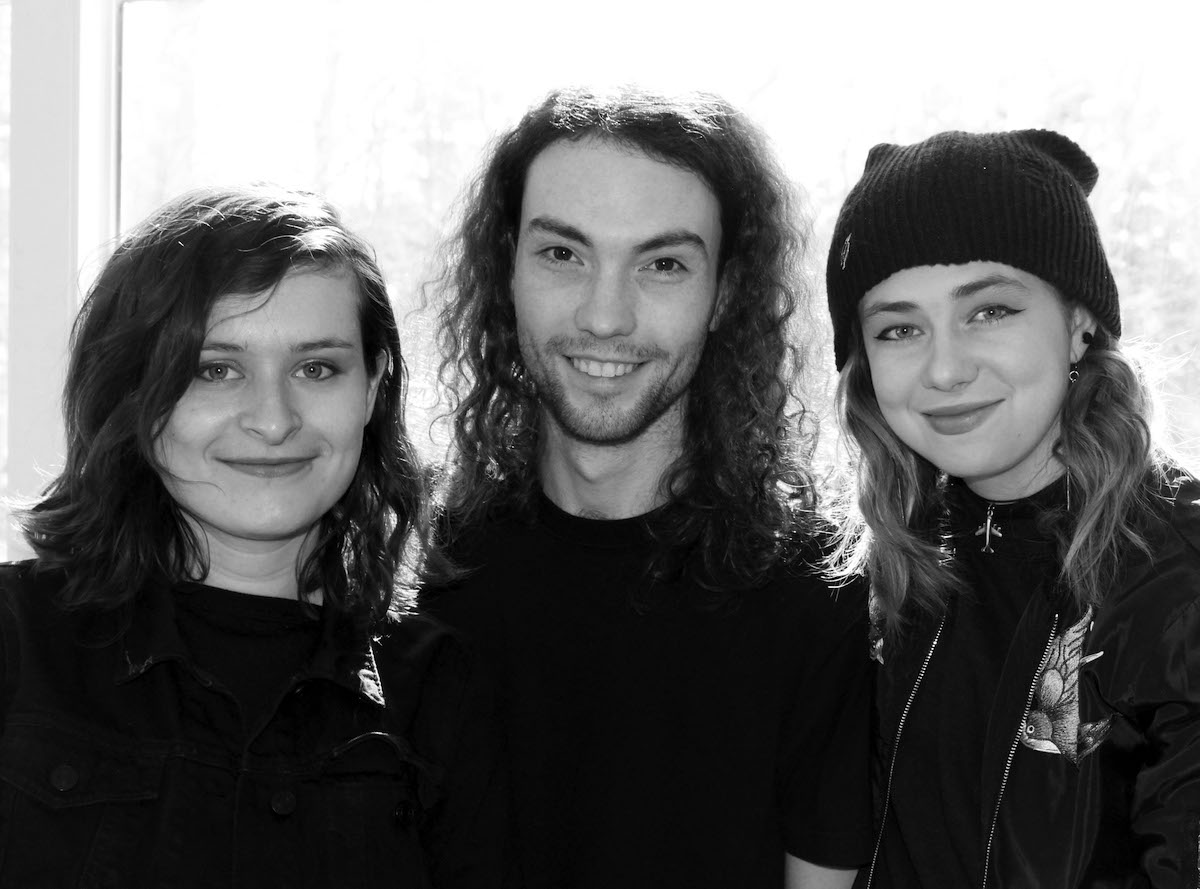
Coming out of that production deal, we were immediately ushered into a major label deal.
We were nineteen, we were smarter, they were kinder, but the imbalance was still clear. We were accountable for their decisions, limited by those decisions, and easily replaceable.
As we started working with their teams, we were told that we shouldn’t have to worry about things like understanding our finances and making large-scale decisions about our careers – there were people to do that for us. We didn’t need to see a budget even though every penny was recoupable before we saw a dime.
When we turned 23, we decided we didn’t need a bank and left the label world for the distribution world, teaming up with Symphonic Distribution. We shook off the constricting advice that had come through gritted teeth and made enough money touring to release an album with a team of people that just loved the music. We like being in control of our own finances and thinking about our future in a strategic way with people who have no agenda, that we trust to offer advice. We have no debt and we can see the return.
This was the first time in eight years we felt like we could make music and content untethered. We’ve released three albums in the last year that we engineered, produced, and recorded on our own, in our makeshift studio of blankets and unsold CD boxes. We used sponsored gear that came from people at companies that believe in us, with a base of supportive music lovers whose generosity and respect is deeper than we ever thought the well could be.
It’s been a long road and we’ve scrapped for every mile of it. The two shy, nerdy humans have become people who call out or shut down sexism or ageism or even simple condescension, intentional or otherwise – not just when it happens to us, but to anyone around us. As we always have, we enter the room with the intent of sharing mutual respect – and now, if that doesn’t manifest, we leave that room and find the one that will. We no longer put ourselves in situations where there is an imbalance of power. We ask for what we need and take care of the people that take care of us.
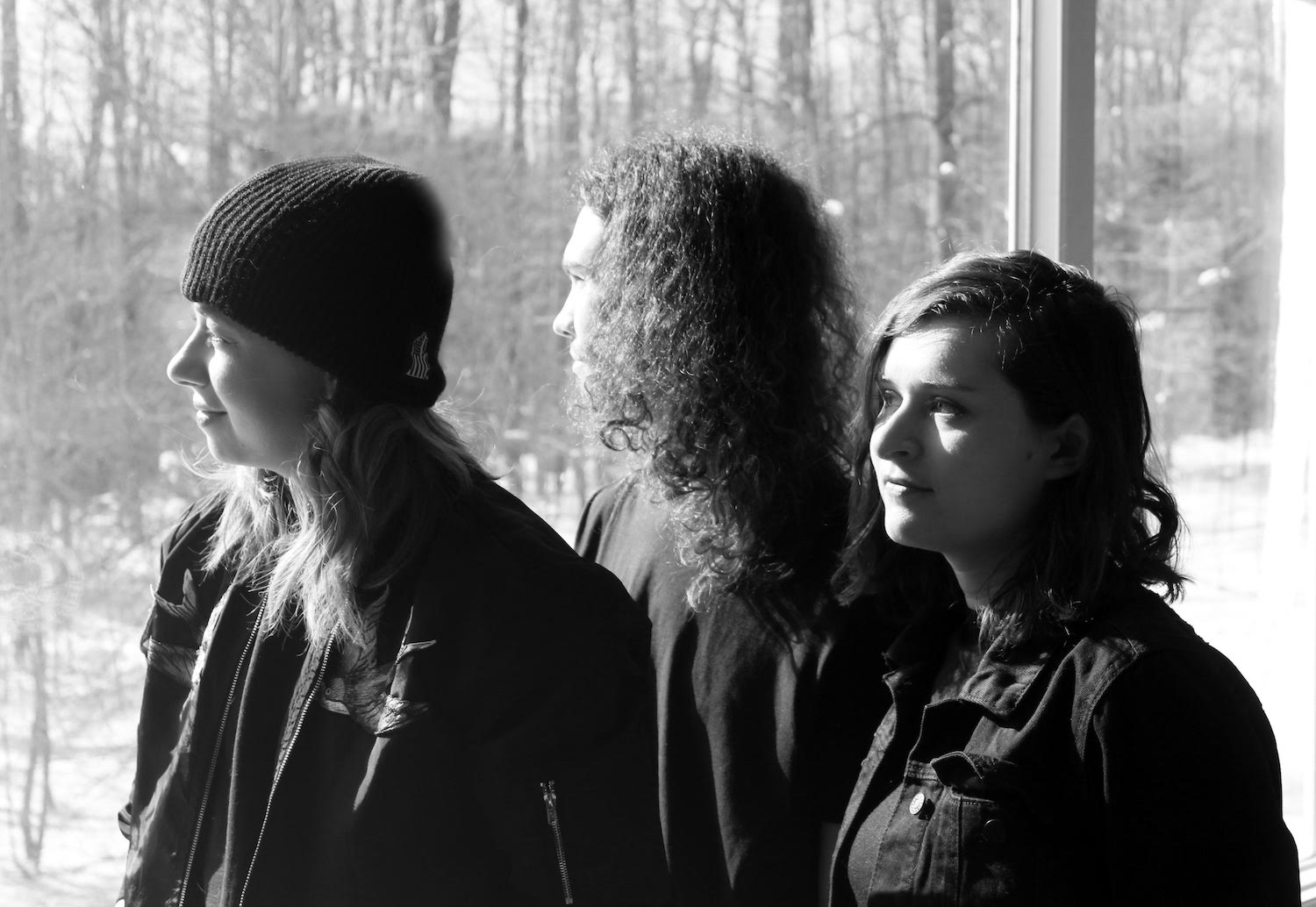
Our story isn’t everyone’s story: There are other artists who’ve dealt with way more than we have in this industry, including racism or homophobia, simply for being brave enough to engage in their craft.
Sometimes, to change the story, you have to see it to believe you can be it – so we started a nonprofit that provides live bands and workshops in schools with the hopes that young females realize they can shred a guitar, write a song, play violin, engineer, produce, and record their own music. They can do whatever they set their minds to and they deserve it just as much as anyone else.
Our friend Beth Nielsen Chapman says creativity is like oxygen, in that anyone can breathe it, that it’s a human right. She is one of the first female Hall of Fame songwriters. Kari Estrin told us that when she managed Suzanne Vega, there were no other female tour managers. Women like them have paved the way for us. Their hands are blistered from hoisting these buckets and they’ve hardly had a chance to drink. It’s our job to do right by them and by the future. We should all keep drawing water until everyone drinks their share. It’s about damn time. – Sav Buist
— —
— — — —

Connect to The Accidentals on
Facebook, Twitter, Instagram
Discover new music on Atwood Magazine
? © Shervin Lainez
:: The Accidentals ::

